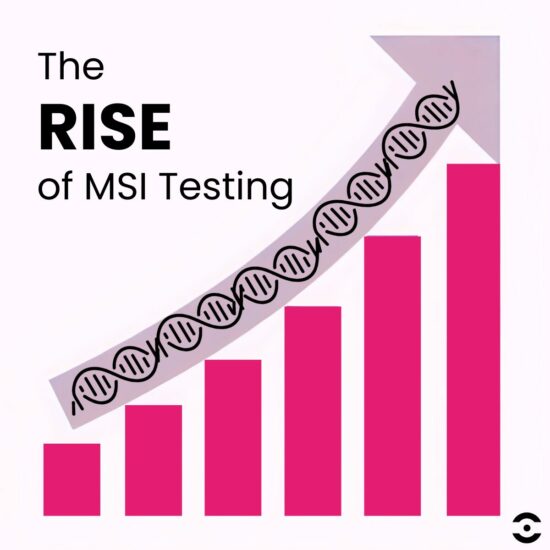Ten years ago, Microsatellite Instability (MSI) testing was largely confined to specialized academic labs. Today, it’s at the center of precision oncology worldwide — and its journey has been nothing short of transformative.
Then:
- Mostly used for confirming Lynch syndrome in colorectal cancer.
- Limited by PCR-based methods — effective in CRC, but blind spots in other tumor types.
- Seen as a “nice-to-have” rather than a driver of therapy choice.
Now:
- Pivotal trials (Le DT et al., NEJM, 2015; Overman et al., Lancet Oncology, 2017) demonstrated MSI-H tumors respond dramatically to checkpoint inhibitors.
- Regulatory first: In 2017, the FDA approved pembrolizumab for any MSI-H/dMMR cancer, the first tumor-agnostic approval in history.
- Guidelines catch up: ESMO, NCCN, and ASCO now recommend MSI testing across multiple cancers, not just CRC.
But here’s the gap:
Despite the science, access is unequal. In France, reimbursement is fragmented — PCR is covered, but NGS (which can detect MSI in more cancers, with higher accuracy) isn’t fully tariffed. This leaves patients vulnerable to missed diagnoses and lost treatment opportunities.
The future isn’t just about detecting MSI — it’s about:
- Making pan-cancer MSI testing routine at diagnosis.
- Linking results to therapeutic decision-making in real time.
- Ensuring global equity in access — from Paris to rural clinics.
Key contributors to the MSI revolution:
@ESMO, @HAS, @NCCN, @Gustave Roussy, @Institut Curie, @MD Anderson Cancer Center
At @MSInsight, we’re developing MSIcare to bring this vision closer — combining advanced NGS analytics with streamlined reporting for clinicians.
Because the future of oncology isn’t just targeted — it’s precise, accessible, and equitable.
#Oncology #CancerDiagnostics #MSI #PrecisionMedicine #NGS #LynchSyndrome #HealthTech #OncoInnovation #CancerCare


